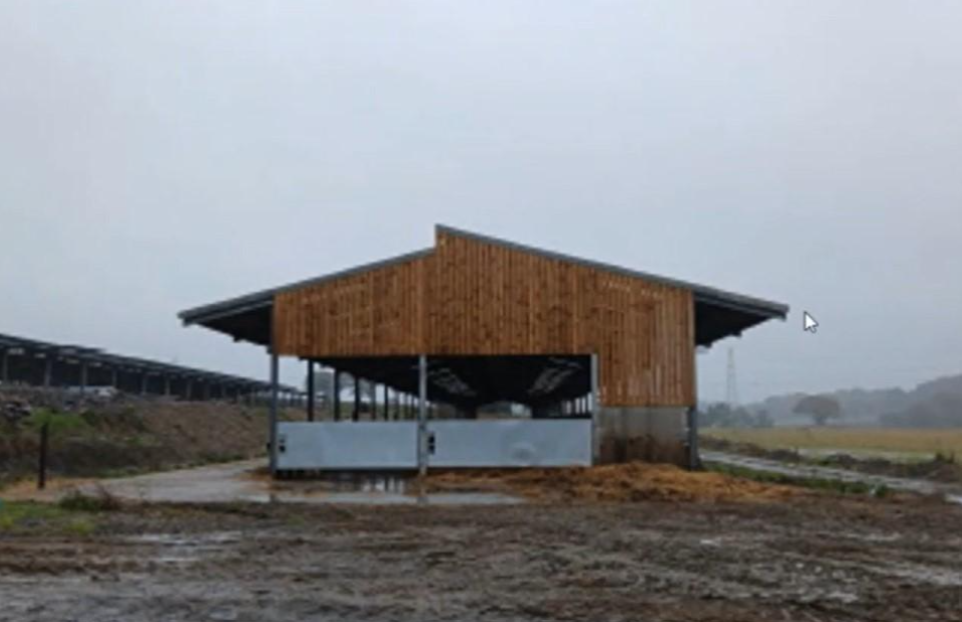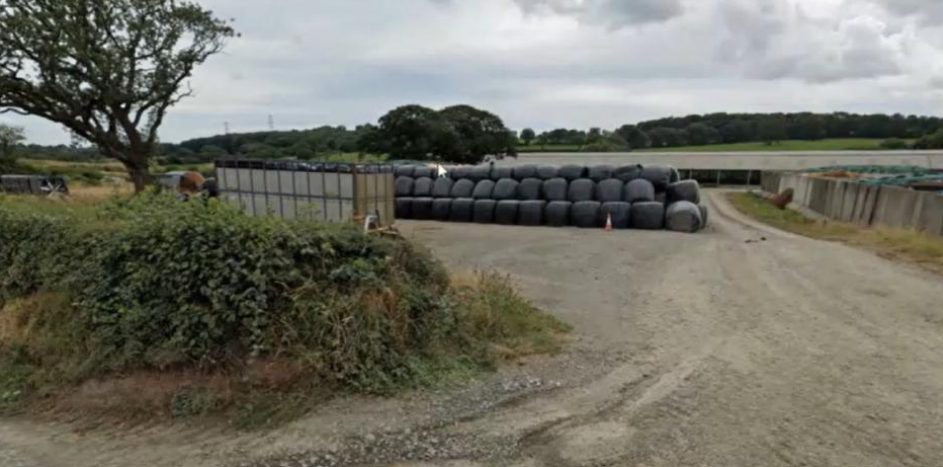Business
Migrant salary threshold lowered

THE GOVERNMENT’s Migration Advisory Committee recommended lowering the minimum salary threshold for migrant workers to the UK to £25,600 in a report presented to the Home Secretary last week.
However, despite the report’s authors acknowledging the large regional variation in average salaries, it does not recommend any adjustments for lower-paid areas.
That decision potentially has interlocking effects. Firstly, in higher-paid urban areas in the south of England migrant labour will be cheaper than elsewhere. Secondly, skills shortages in sectors in which migrants work are likely to increase in the English regions and devolved countries where wages are on average lower than £25,600. The Committee said temporary workers should be admitted where shortages would adversely affect the economy.
Mike Cherry, National Chairman of the Federation of Small Businesses (FSB) said: “The recommendation to lower the proposed minimum salary threshold to £25,600 is a welcome, pro-business proposal, which would widen the scope for employing those beyond highly-paid professions.
“It is vital that the workers and skills needed for the UK’s economy to grow are not locked out by a future immigration system which is unresponsive to business needs.
“One in five small employers in the UK have at least one staff member from the EU.
“FSB research shows that four-in-five small employers that hire staff into jobs classed as mid-skilled do so into roles with salaries less than £30,000. This includes positions in sectors such as engineering and IT.
“The recommendation for a route to the UK without a job offer is also positive, but this must be open to mid-skilled workers and not restricted to highly-paid professionals. It should allow for smaller businesses across all regions, nations and sectors to recruit the people with the skills they need.
“It is pleasing to see that the committee has listened to FSB’s arguments for a salary threshold below £30,000, as well as an unsponsored route, which selects migrants based on their personal characteristics and allows for regional variation.
“The challenge now for the government will be to have a new, employer-responsive immigration system in place in time for the end of the transition period eleven months from now, and allowing sufficient time for small business employers to prepare. FSB looks forward to working with the government on this.”
Business
Langdon Mill Farm Pembrokeshire expansion signed off

THE FINAL sign-off for plans for a heifer accommodation building and associated works at one of Pembrokeshire’s largest dairy farms, with a milking herd of 2,000 cows, have been given the go-ahead.
In an application backed by councillors at the December meeting of Pembrokeshire County Council’s planning committee, Hugh James of Langdon Mill Farms Ltd sought permission for a 160-metre-long heifer accommodation building, a slurry separation/dewatering building and associated yard areas at 1,215-hectare Langdon Mill Farm, near Jeffreyston, Kilgetty.
A supporting statement through agent Reading Agricultural Consultants said: “The holding currently has a milking herd of approximately 2,000 cows, which are housed indoors for the majority of the year, with dry cows and heifers grazed outdoors when weather and soil conditions permit.

“There has been significant investment in buildings and infrastructure at the farm over the last decade in respect of cattle accommodation, slurry storage, milking facilities, Anaerobic Digestion (AD) plant, feed storage. Recently a calf and weaned calf accommodation buildings were approved by Pembrokeshire County Council with construction almost complete.
“The unit is efficient, achieving yields of more than 10,000 litres/cow/year, with cows being milked three times/day in the 60-point rotary parlour. Langdon Mill Farm currently directly employs 21 full-time, and three part-time staff. Of these, four live on site in the two dwellings opposite the farm, with the remaining staff living in the locality.”
It added: “Although the unit has previously purchased heifers to aid expansion, the farm now breeds most of its own replacements to improve genetics and to minimise the ongoing threat of bovine tuberculosis (bTB).”
It said the proposed building would be used by heifers between the ages of 7-22 months, the siting “directly influenced by the adjacent calf and weaned calf buildings, with livestock being moved from one building to the next as they get older”.
Members unanimously supported the recommendation of approval, giving delegated powers to the interim head of planning to approve the application following the final approval of a habitats regulations assessment.
An officer report published yesterday, February 5, said Natural Resources Wales confirmed it had received the assessment, and, “in consideration of the mitigation measures detailed and on the understanding there is no increase in stock, they agree with the LPA’s conclusion that an adverse effect upon the integrity of the SAC [Special Areas of Conservation] sites can be ruled out”.
Formal delegated approval has now been granted by officers.
Business
Report into Wales SME finance paints mixed picture as barriers remain

A NEW report by the British Business Bank and Economic Intelligence Wales shows that while most Welsh SMEs remain financially stable, many continue to face barriers to accessing finance and are less likely than their counterparts in other devolved nations to seek funding for future growth.
The Wales SME Access to Finance Report 2026 has found that 66% of Welsh SMEs are currently using external finance, and eight in ten (80%) report a positive cash flow position. Despite this, 19% of smaller Welsh businesses reported experiencing barriers to accessing finance, the highest proportion among the devolved nations.
The report also highlights a more cautious outlook among Welsh SMEs when it comes to future investment. Just 17% of Welsh businesses expect to require additional finance over the next year, compared with 42% in Northern Ireland and 47% in Scotland. While 62% of Welsh SMEs that anticipate needing finance say they are confident about securing it, overall demand for funding remains lower than elsewhere in the UK.
Regional variations within Wales are also evident. SMEs based in North Wales and South West Wales were more likely to report barriers to finance (both 21%), while South West Wales businesses were least likely to feel confident about securing additional funding. At the same time, SMEs in South East Wales were most likely to report a finance requirement above £250,000, reflecting differing growth profiles across regions.

The findings underline the importance of a diverse and accessible finance ecosystem to support business investment, innovation and growth across all parts of Wales.
Susan Nightingale, Director UK Network, British Business Bank, said: “Welsh businesses continue to show resilience and confidence, with most reporting positive cash flow and steady growth expectations. Yet, clear regional and structural differences remain in access to finance, particularly for smaller businesses and sole traders. With Wales recording the highest share of smaller businesses experiencing barriers to finance among the devolved nations, it is vital that all businesses, wherever they are in the country, have the knowledge, confidence and support to secure the right finance for them. This will be key to unlocking sustainable growth across every part of Wales.”
Giles Thorley, Chief Executive of the Development Bank of Wales, said: “This year’s Wales SME Access to Finance Report shows a mixed picture. It’s encouraging to see many Welsh SMEs reporting strong cash flow, yet concerning that confidence and demand continue to lag behind other UK nations. If we want our businesses to innovate, invest and grow, closing that gap must remain a priority.
“Improving access to finance isn’t something any one organisation can solve alone, but the Development Bank of Wales will continue to play a vital role in supporting SMEs, working alongside partners across the wider finance ecosystem to help businesses invest, innovate and grow.”
Economic Intelligence Wales is a unique research collaboration between the Development Bank of Wales, Cardiff Business School, Bangor Business School, the Enterprise Research Centre, and the Office for National Statistics (ONS).
Business
International Women’s Day event aims to open doors for future talent in West Wales

BUSINESS leaders, students and policymakers will gather in Pembrokeshire next month to mark International Women’s Day with an event focused on opportunity, leadership and retaining talent in West Wales.

The third annual Partners in Progress: Give to Gain conference will take place on Friday (Mar 6), bringing together established professionals and the next generation of workers to share practical advice and real-world experience.
The event is organised by Institute of Directors Wales, in partnership with Bluestone National Park Resort and the Welsh Government through Trade & Invest Wales.

Hosting the conference in West Wales, rather than a city centre, aims to highlight the growing opportunities available in regional communities and the role local employers play in keeping skilled people closer to home.
Running from 10:00am to 2:00pm, the programme will include panel discussions, site tours and networking sessions. Sixth form, college and university students will be encouraged to question speakers directly about careers, leadership and progression.

Speakers include Belinda Houghton-Jones of RBC Brewin Dolphin, Alex Shufflebottom Jones, former managing director of Shufflebottom Ltd and now an investor and mentor, Dr Owain James of Darogan, and Jane Wallace-Jones, founder of Something Different. The panel will be chaired by Richard Selby, National Chair of IoD Wales.
Organisers say the focus will be firmly practical, with businesses sharing examples of how they are developing staff, widening access to opportunity and building inclusive workplaces.
The discussion comes as Welsh firms continue to report difficulties recruiting and retaining skilled staff. IoD Wales’ latest State of the Nation survey found that skills shortages remain the biggest concern for almost four in ten organisations.
Jo Price, Nations Manager for Wales at IoD Wales, said the aim is to connect experience with ambition.
She said: “Partners in Progress is about bringing people together to tackle real challenges facing businesses and future talent in Wales.
“By connecting leaders and students in West Wales, we can share what works, build confidence and create opportunities where people live and want to work.”

Rebecca Rigby, Director of Operations at Bluestone, added: “We’re proud to host this event for a third year. It’s about creating meaningful connections between future talent and inspirational leaders, and showing what’s possible beyond the big cities.”
Thanks to Welsh Government support, tickets are fully funded, although places are limited. Standard prices are £25 plus VAT for members and £35 plus VAT for non-members.
Places can be booked online via the IoD website.
-

 Crime4 days ago
Crime4 days agoSex offender jailed after living off grid in Pembrokeshire and refusing to register
-

 Health3 days ago
Health3 days agoHealth board targets rise in steroid and gym drug use across west Wales
-

 News5 days ago
News5 days agoPrincess of Wales visits historic Pembrokeshire woollen mill
-

 Health7 days ago
Health7 days agoDoctor struck off after sexual misconduct findings at Withybush Hospital
-

 Crime3 days ago
Crime3 days agoTeacher injured and teenager arrested for attempted murder at Milford Haven School
-

 Crime5 days ago
Crime5 days agoHakin man’s appeal delayed again as Crown Court seeks guidance on insurance law
-

 News7 days ago
News7 days agoHerald journalists to feature in true-crime documentary on local lockdown murder
-

 Crime6 days ago
Crime6 days agoArrest made after Carmarthen park stabbing investigation

























